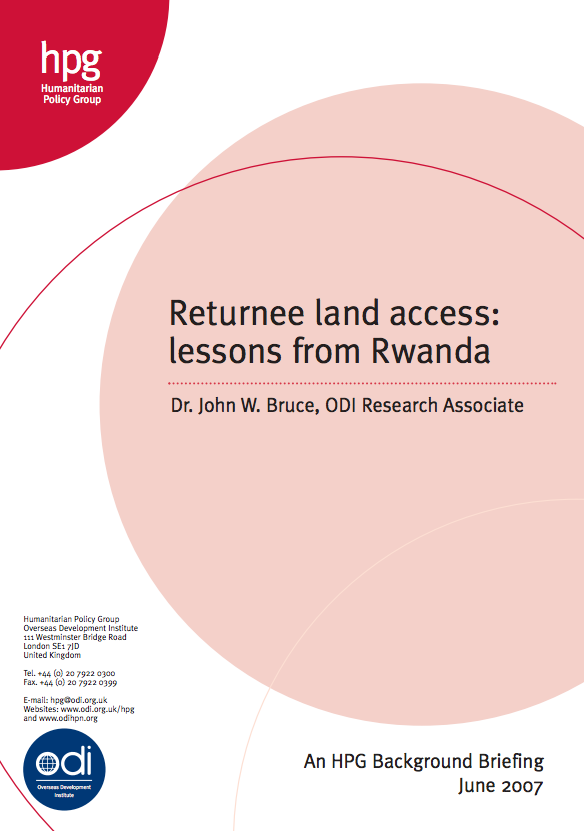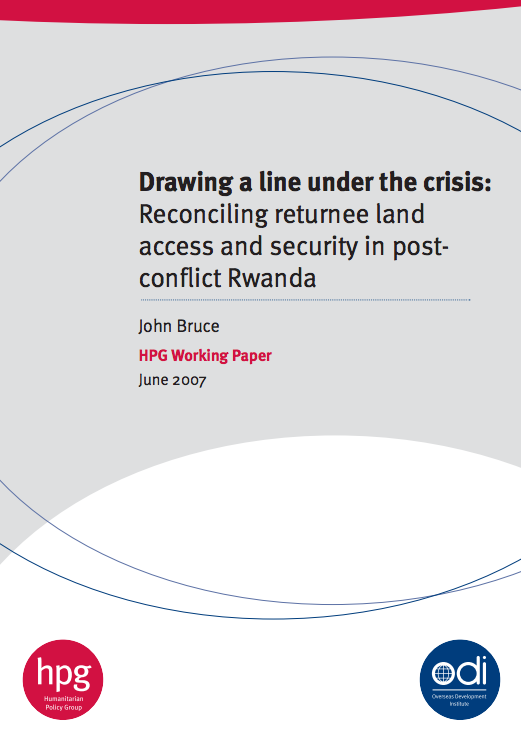Location
HPG is a programme of the Overseas Development Institute.
One of the world's leading teams working on humanitarian issues. We are dedicated to improving humanitarian policy and practice through a combination of high-quality analysis, dialogue and debate.
HPG work is directed by our Integrated Programme, a body of research designed in consultation with our advisory group. This is complemented by commissioned studies, communications and networking activity.
Our Integrated Programme
Since 1999, HPG has produced an annual programme of work that combines its different core activities within a coherent thematic framework. This integrated body of research is designed each year through consultation with an advisory group, and gives intellectual coherence to its work, helping to ensure HPG's effectiveness and providing a clear basis for the mobilisation of funds.
Members:
Resources
Displaying 6 - 8 of 8Drawing a line under the crisis: Reconciling returnee land access and security in post-conflict Rwanda
Includes land and conflict, returnee land access, the role of international humanitarian organisations, policy and law reforms, drawing a line under crisis.
Returnees Land Access: Lessons from Rwanda
This background briefing reports on a study of land access
for returnees in Rwanda, and the impacts of land access
policies in the post-conflict period. It also seeks to
understand better the roles international humanitarian
agencies and NGOs have played, and how their performance
can be improved. It is not suggested that Rwanda is typical,
but rather that the centrality of land issues there has thrown
up a revealing set of broader questions.
Drawing a line under the crisis: Reconciling returnee land access and security in post-conflict Rwanda
This report is part of a broader comparative effort by As the author worked with colleagues in Rwanda,
two other important dimensions of the Rwandan
experience became clear. Refugee return and land
access in Rwanda has been an extraordinarily
complex matter, with some refugees leaving just in
time for others returning to take up their homes and
lands. Rwanda has important lessons to teach us
about the need to maintain flexibility in dealing with
complexity, and raises questions about whether




